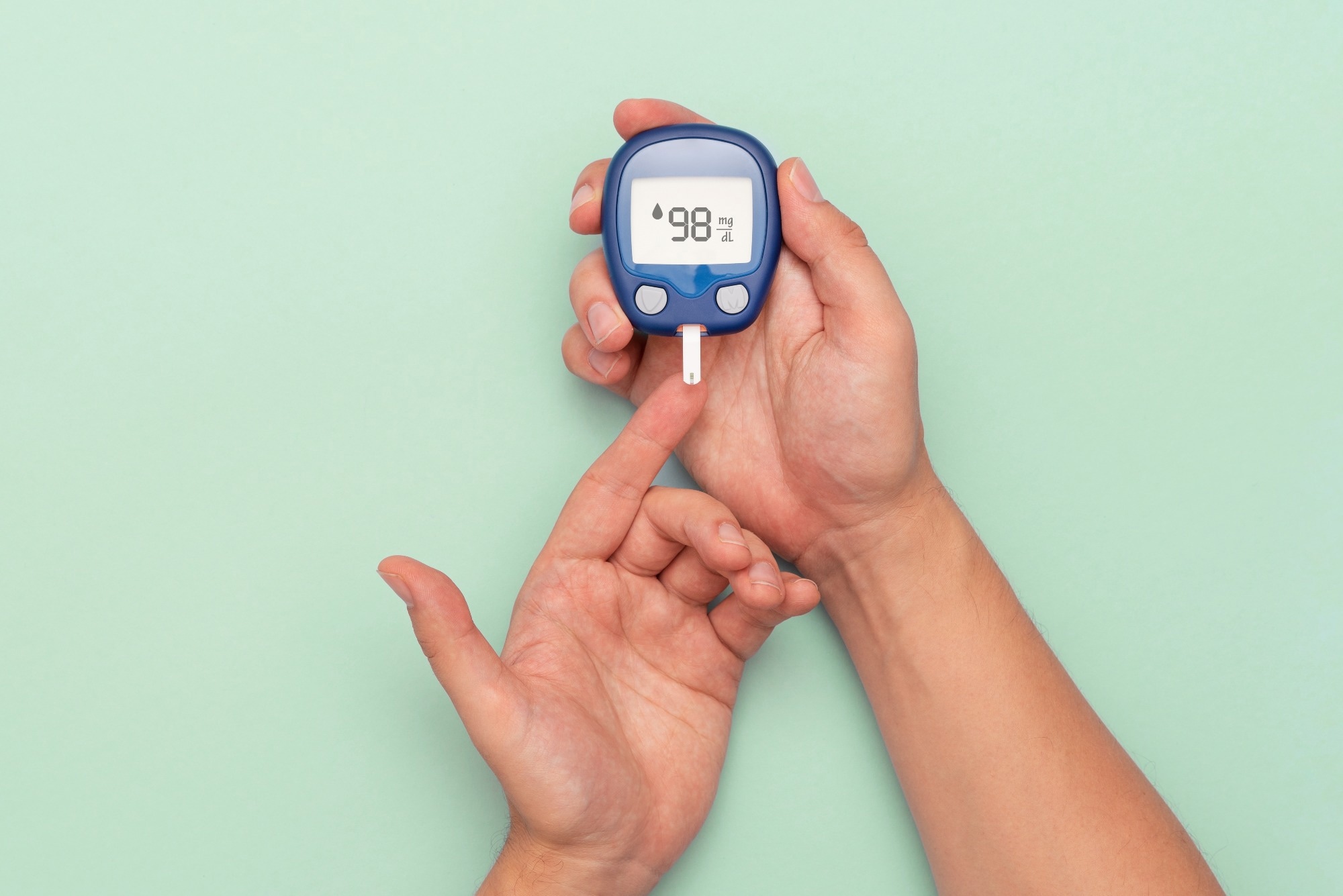In a recent study published in Diabetologia, researchers examine the effect of diabetes remission on long-term health outcomes.
Study: Impact of remission from type 2 diabetes on long-term health outcomes: findings from the Look AHEAD study. Image Credit: Proxima Studio / Shutterstock.com
What is diabetes remission?
Remission from type 2 diabetes is considered attainable by many patients. Although diabetes remission is typically associated with bariatric surgery, lifestyle interventions have also been effective in achieving remission from prediabetes and diabetes.
Diabetes remission following bariatric surgery can lead to chronic kidney disease (CKD) and cardiovascular disease (CVD). Nevertheless, bariatric surgery results in longer and greater glucose normalization than remission through lifestyle interventions.
To date, no studies have assessed the impact of lifestyle-based remission from diabetes on long-term outcomes.
About the study
In the present study, researchers examined the impact of diabetes remission on the subsequent incidence of CVD and CKD. To this end, an observational post hoc analysis of the Look AHEAD study participants was performed.
Look AHEAD was a randomized controlled trial comparing the effects of an intensive lifestyle intervention (ILI) to diabetes support and education (DSE) on long-term outcomes. The trial randomized 5,145 obese or overweight adults 45-76 years of age with type 2 diabetes.
ILI encompassed weekly individual and group sessions in the first six months, followed by one individual session and two group sessions every month for the next six months. For years two through four, two contacts to the study participants were made every month.
These participants were asked to attend support sessions every month between years four and 12. Behavioral strategies were used to help meet weight, behavioral, physical activity, and dietary goals.
DSE recipients were offered three annual group sessions focused on social support, diet, and physical activity; however, they were not offered personalized behavioral support.
All study participants made a baseline clinic visit, followed by annual follow-up visits for four years and every two years thereafter. Study personnel examined health status, body weight, height, glycated hemoglobin (HbA 1c), and use of medications at each visit.
Diabetes remission was defined as the transition from meeting the criteria of diabetes to those of prediabetes without using glucose-lowering drugs. The primary outcomes were the incidences of CKD and CVD.
Study findings
Overall, 4,448 participants from the Look AHEAD study were retained in this analysis after excluding those with insufficient follow-up data, bariatric surgery, and remission at baseline. About 12.7% of participants met the definition of remission for at least one follow-up visit. Remission prevalence was 11.2% in the first year for the ILI group and declined by 0.7 percentage points every year.
By contrast, remission prevalence was about 2% yearly in the DSE group. Remission status and duration were significantly associated with baseline disease duration, medication use, and fasting plasma glucose, HbA 1c, and systolic blood pressure levels. Individuals who attained remission were highly likely to have used medications at baseline.
Individuals with remission for two or more follow-up visits were less likely to have CVD. Furthermore, longer remission periods were associated with shorter diabetes durations.
Remission was associated with changes in risk factors and weight over four years. The average weight loss was four kilograms after one year and 2.2 kg after four years for individuals without remission. By contrast, average weight loss was 12.3 kg and 9.6 kg after one and four years, respectively, for subjects with remission for at least four visits.
Participants who achieved remission exhibited greater improvements in fitness and high-density lipoprotein (HDL)-cholesterol levels after one and four years than those without remission. However, individuals with remission had smaller reductions in low-density lipoprotein (LDL)-cholesterol. Participants with remission had a 40% and 33% reduced rate of CVD and CKD, respectively, as compared to those without remission.
In analyses with the DSE group as the reference, ILI subjects with remission had a 23% reduced rate of CVD and 40% lower rate of CKD. In analyses stratified by randomization, remission was associated with a 68% reduction in CVD but not CKD in the DSE group, whereas the LIL group was associated with a 34% decrease in CKD but not CVD.
Conclusions
About 11% of study participants achieved remission by the first year, which was reduced to 4% by the eighth year. Despite the short-lived remission period, remission was associated with 40% and 33% lower CVD and CKD rates than in participants without remission, respectively.
Individuals with a shorter diabetes period, greater weight loss, or low baseline HbA 1c were most likely to achieve remission. The magnitude of risk reduction was highest for those with longer-term remission.
Journal reference:
- Gregg, E. W., Chen, H., Bancks, M. P., et al. (2024). Impact of remission from type 2 diabetes on long-term health outcomes: findings from the Look AHEAD study. Diabetologia. doi:10.1007/s00125-023-06048-6








